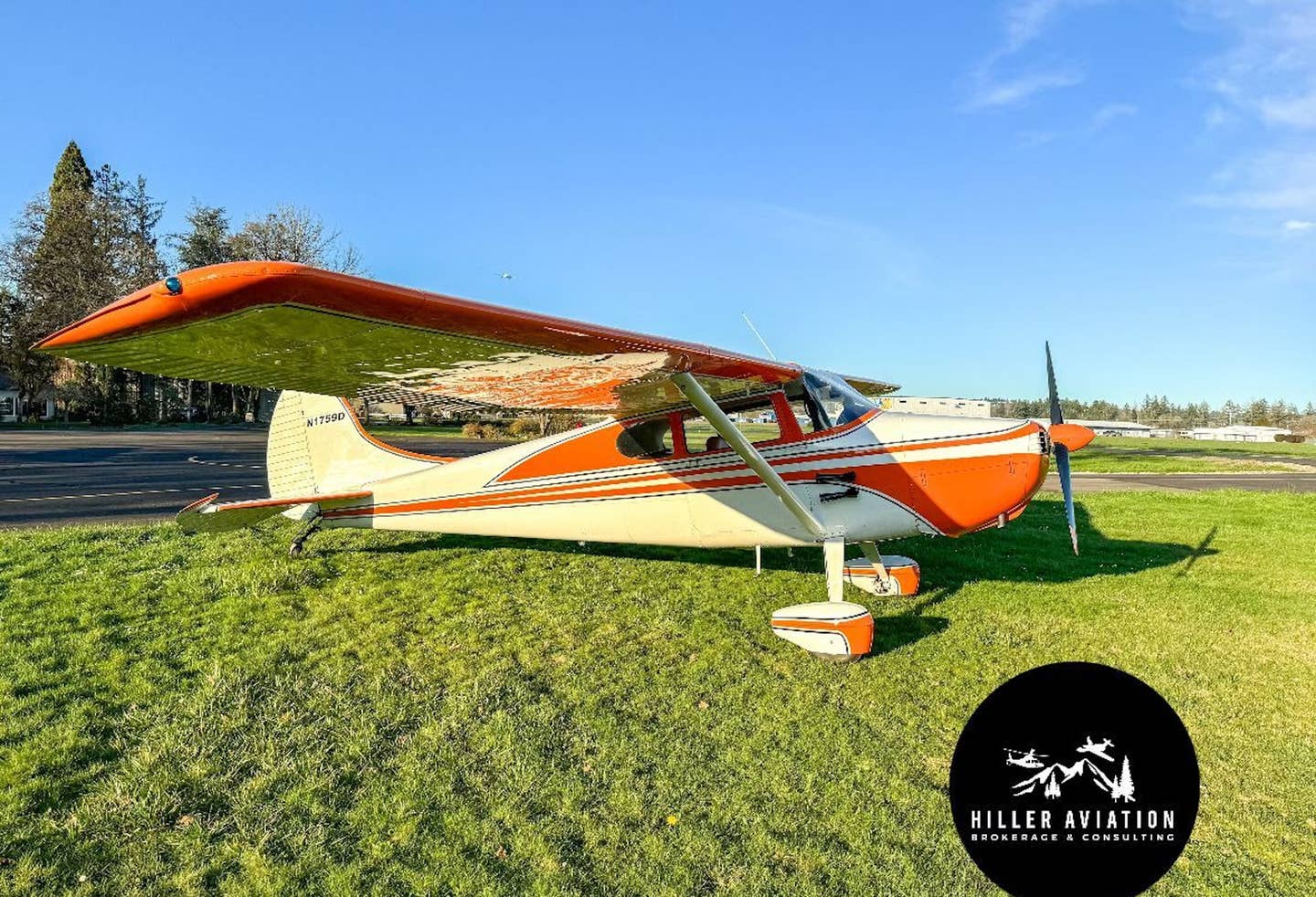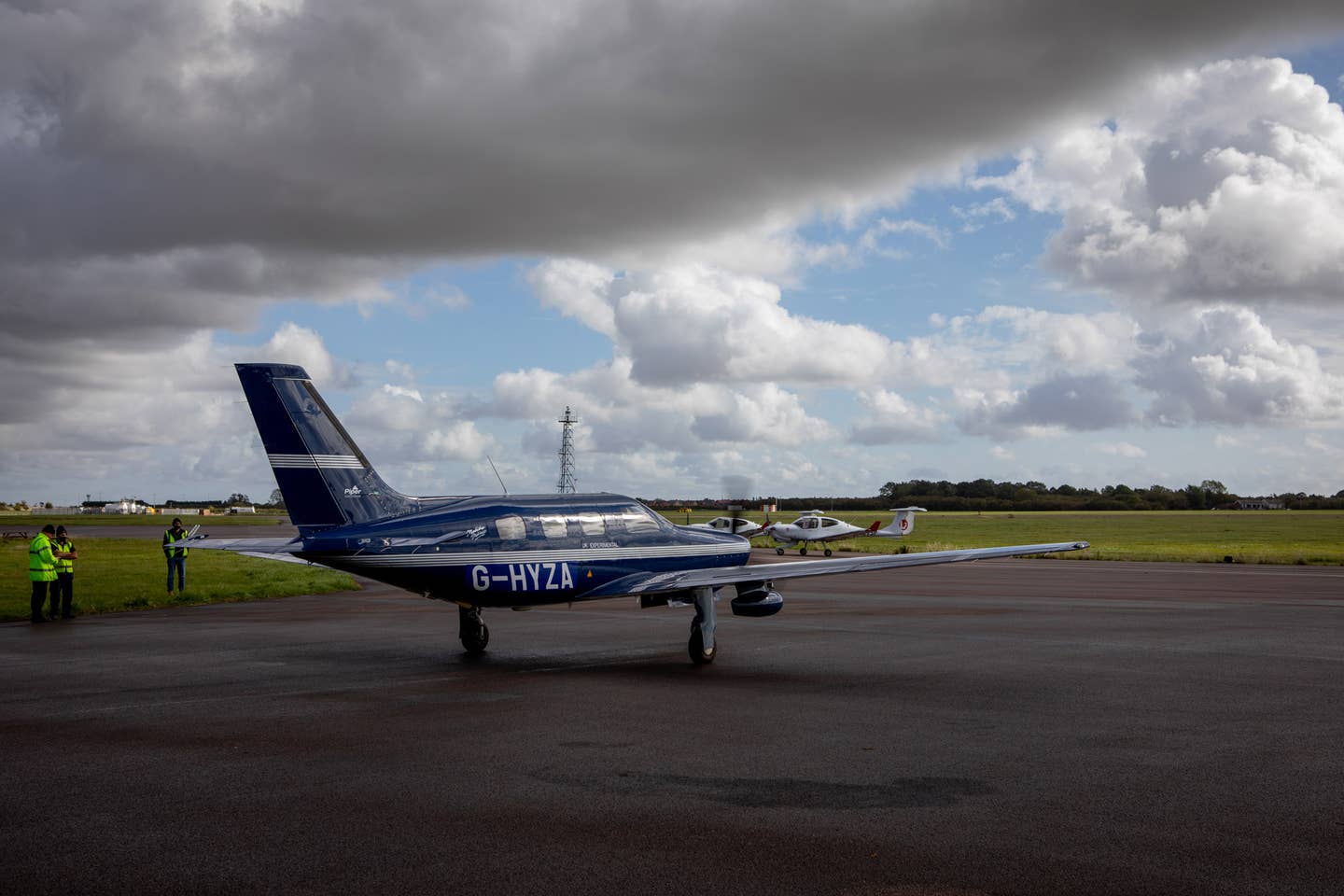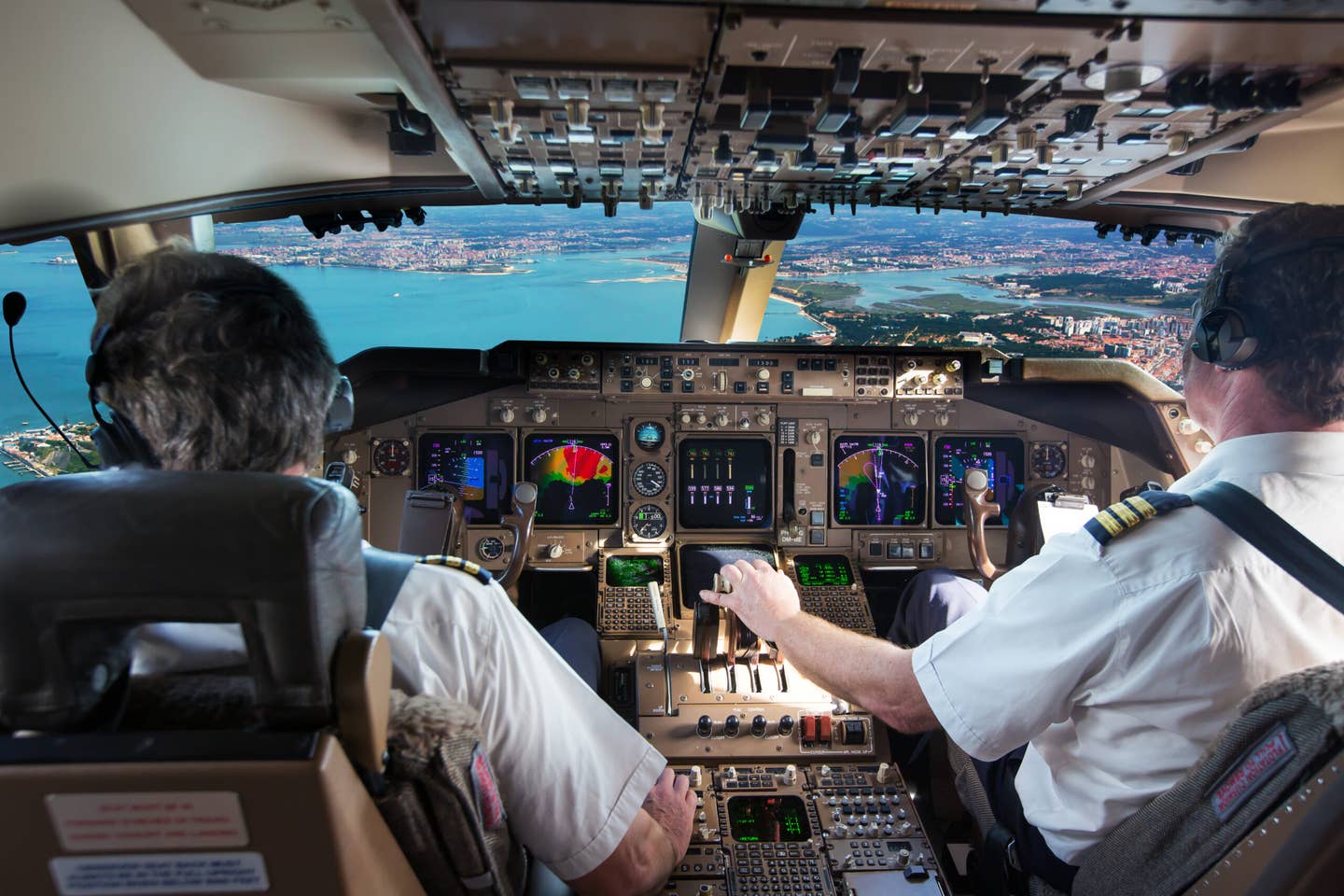
If you're fortunate enough to live a long life, you may reach a point when you start to wonder whether it’s time to retire as pilot in command. You may feel that your vision or mental status isn’t up to par, or you may begin to have trouble entering or exiting the airplane. The point at which you put your pilot’s certificate in the shadow box of memories is impossible to predict. Some people quit flying before they turn 70 while others continue flying late into their 90s. You can’t change your genes, which have a great influence on your life expectancy, but you can make lifestyle choices that prolong your ability to stay active and healthy later in life, and may allow you to fly until or even beyond your 85th birthday.
At the age of 102, Evelyn “Mama Bird” Johnson has surpassed the centennial milestone that most people alive today won’t. But what’s even more extraordinary about Johnson is that she was flight instructing and giving flight tests as a designated pilot examiner into her mid-90s. Before she put her logbook on the shelf for good, she accumulated 57,635.4 flight hours — the most recorded by any woman.
Johnson would probably consider Clay Lacy a spring chicken. Lacy, who is the founder and CEO of Clay Lacy Aviation in Van Nuys, California, is about to celebrate his 80th birthday. But Lacy would agree with Johnson. "I always pictured myself as a young person, and I think flying makes you feel young because you have to have a certain amount of proficiency to fly." And proficient only begins to describe Lacy's current flying ability. Twenty years after retiring from United Airlines, he still flies several times a week, regularly in about half a dozen airplane types, and he performs aerobatics at airshows in a Learjet. Lacy has well over 50,000 flight hours and has received numerous aviation awards and honors.
Lacy credits his ability to keep flying to good genes. He recalls saying to his wife, “I wish we could keep ourselves in as good a shape as you can keep these airplanes in, if you take care of them.” She replied: “Well, you certainly never tried.”
While you can’t do anything about your genetic makeup, for good or for bad, you can seriously affect your quality of life by the lifestyle choices you make. And in order to keep flying, you must maintain good functionality of several bodily systems. FAA medical examiners are required to check your hearing and equilibrium, vision, cardiovascular system, psychological and neurological state, and general medical condition. Here are some pointers that will help increase your chances of passing the medical test and make you feel good enough to fly, as Johnson, Lacy and many others have done, even past the current American population’s life expectancy of 78.5 years.
Can You Hear Me?
While there are some very capable deaf pilots, your hearing is one component that you should protect if you are interested in continuing to fly into old age. One way to prevent hearing loss is to wear ear protection. A good headset will go a long way toward extending functional hearing. And any time you go to a loud concert, head to the shooting range, work in a noisy factory or are otherwise exposed to high noise levels, wear earplugs.
Another factor that we as pilots expose ourselves to that can cause moderate to severe hearing loss is what’s called barotrauma — damage to the ear due to pressure changes. Barotrauma can result from rapid pressure changes while climbing or descending during flight or scuba diving. This condition is also easily preventable by controlling the ascent or descent rate (less than 1,000 feet per minute should keep you safe in the air) or by equalizing the ears by chewing gum, swallowing or yawning.
What Do You See?
There is a group of deaf pilots who have achieved an Authorization for Special Issuance of a Medical Certificate or a Statement of Demonstrated Ability, which allows them to fly as pilots in command, but it would be impossible for a blind pilot to achieve the same freedom. Taking care of your eyes is therefore of utmost importance.
According to the National Eye Institute (NEI), the most common cause for vision loss for people over 60 years is age-related macular degeneration (AMD) — a gradual degradation of central vision. The risk of getting AMD increases from 2 percent during middle age to 30 percent for people 75 years and older, according to the NEI. Fortunately, there are several things you can do to prevent this debilitating condition.
A study by the NEI released in 2001 found that people with a high risk of developing advanced stages of AMD “lowered their risk by about 25 percent when treated with a high-dose combination of vitamin C, vitamin E, beta-carotene and zinc.” And you don’t need to take supplements to get these vital components. Green leafy vegetables, carrots, and several types of nuts and seeds will do the trick.
Smoking will increase the chances of AMD.
“I recommend against smoking, but there are lots of good reasons for pilots not to smoke tobacco,” says Dr. Joe Demer, chief of the Pediatric Ophthalmology and Strabismus Division and professor of ophthalmology and neurology at UCLA.
Smoking can also lead to cataract — a clouding of the lens, which affects more than 50 percent of people over the age of 80, according to the NEI. If you suffer from this disease, Demer has some good advice if you’d like to continue flying at night.
“I would very much discourage pilots from having multifocal intraocular lenses implanted as they produce very severe disturbances in night vision that for a pilot would be completely disabling,” he says. “I strongly discourage my pilot friends, in fact most of my friends who want to be active seeing well at night, from having those kinds of implants.”
Demer also recommends wearing “ultraviolet-absorbing sunglasses to protect the eyes from the damaging effects of UV radiation,” and he says periodic examinations by an eye specialist, preferably an ophthalmologist, will help detect diseases early and prevent permanent vision loss.
Keep Breathing
Unfortunately, it's not just your vision that degrades with age. Your lung function also decreases as the lungs become less elastic and the number of alveoli, which help the body trade oxygen for carbon dioxide, decreases. Also, people generally tend to put on weight, and "those big bellies cause problems," says Dr. Brent Blue, physician and senior aviation medical examiner and managing partner of aeromedix.com in Jackson Hole, Wyoming. "When [such people] sit down in the airplane, they can't take deep breaths because of their big bellies, and the oxygen saturation tends to slowly drop because they're not ventilating very well."
Whether you’re overweight or not, Blue recommends flying with a pulse oximeter.
“That’s the only objective way you can know if you’re getting enough oxygen,” he says.
Having sufficient oxygen is critical to safe flight. Blue says you will experience “less fatigue, better vision, less strain on your heart and less strain on your brain, and your cognitive skills will be better. Your landings will be better, believe me.”
Flying airplanes is a physically passive activity, and unfortunately, airport food is generally not the healthiest. So you need to actively find ways of keeping the weight down. A balanced diet is the first line of defense against obesity and disease.
“There’s a great movie about that called Forks Over Knives,” Blue says. “It’s about how you prevent illness with diet.”
The knives the movie refers to are surgical scalpels.
Another simple trick to keeping the weight down that could come in handy at your dinner table has been put to use by the people in Okinawa — an area of Japan that has been studied in depth because of its high rate of centenarians. One of their secrets is hara hachi bu — a tradition of eating only until they are 80 percent full. Okinawans consume an average of 500 calories less per day compared with average Americans. The Okinawan diet is high in fish, noncomplex carbohydrates and vegetables, and low in meat and dairy products.
If, like many people, you’re finding it difficult to consume the amount of fruits and vegetables that constitute a balanced diet, try drinking smoothies and juices. As long as they don’t contain a lot of added sugar, they are tasty options of getting the nutrients you need.
Keep Active
Another way to keep the weight down and keep the cardiovascular system healthy as you age is to be physically active.
"The advice I like to give is to be active for 30 to 40 minutes a day with moderate exercise, which means 60 to 80 percent of maximum heart rate," says Dr. Byron Patterson, sports physician and medical director of Primary Care Sports Medicine in Encino, California, and team physician for the Los Angeles Galaxy soccer team. The max heart rate Patterson refers to can be calculated by subtracting your age from 220 beats per minute. However, Patterson recommends a visit to your physician before starting any exercise program because you may have underlying medical conditions that could restrict you to a lower target heart rate.
In addition to the potential for obesity, consistent lack of activity can have other debilitating effects.
“Prolonged inactivity can potentially worsen arthritic conditions, which may lead to various levels of joint restriction,” Patterson says.
And restricted joint movement can make it difficult to get in and out of airplanes.
To maintain or increase flexibility, Patterson recommends “eccentric and concentric types of exercises that improve flexibility and strength at the same time.” Examples of these exercises include pilates and yoga, which Patterson recommends doing a couple of times a week.
If you’re suffering from a lack of mobility due to osteoarthritis, there are things you can do to improve your range of motion and your quality of life.
“Viscosupplementation injections help prevent the progression of arthritis,” Patterson says. “And also they’ve gotten extremely good at joint replacements, especially for the hips and knees, that will allow a person who once was fairly inactive to become active again, even running marathons.”
If you can't stay active because you're stuck in the pilot's seat for extended periods of time, there are still things you can do to keep the blood flowing. There are several exercises you can do to create circulation in your body while you're seated, such as contracting and relaxing muscles in the extremities. (See examples of these exercises here.)
Following these guidelines will help you live a longer, healthier, more functional life. But it appears that one of the best things you can do for yourself is to continue to work. There is no word for retirement in the Okinawan dialect. And it seems that Johnson and Lacy, neither of whom focused on maintaining a very healthy lifestyle, kept themselves young by doing something they thoroughly loved to do — flying.
For more on staying healthy, read these ten easy tips.

Sign-up for newsletters & special offers!
Get the latest FLYING stories & special offers delivered directly to your inbox






